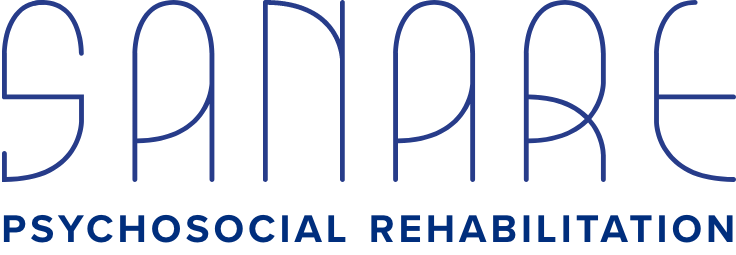Core Principles and Values of Psychosocial Rehabilitation
The organization that governs the practice of Psychosocial Rehabilitation, which can also be called Psychiatric Rehabilitation is called the Psychiatric Rehabilitation Association (PRA). This organization strives to make sure that providers across the country are providing ethical, compassionate care to those individuals struggling with mental health concerns. PRA also provides education and advocacy to the community as well as conducts research to continue to advance the field of Psychosocial rehabilitation forward. In addition, PRA certifies mental health professionals such as our founder, Briana Severine, to become Certified Psychiatric Rehabilitation Practitioners (CPRP).
PRA developed the Core Principles and Values, the definition of Psychiatric Rehabilitation, and the Multicultural Principle in an effort to help clients be able to request services that are in line with these guiding values and hold their practitioners to the highest standard.
12 Core Principles and Values of Psychiatric Rehabilitation
Principal 1: Psychiatric rehabilitation practitioners convey hope and respect, and believe that all individuals have the capacity for learning and growth.
Principal 2: Psychiatric rehabilitation practitioners recognize that culture and diversity are central to recovery, and strive to ensure that all services and supports are culturally relevant to individuals receiving services and supports.
Principal 3: Psychosocial rehabilitation practitioners engage in the processes of informed and shared decision-making and facilitate partnerships with other persons identified by the individual receiving services and supports.
Principal 4: Psychiatric rehabilitation practices build on strengths and capacities of individuals receiving services and supports.
Principal 5: Psychiatric rehabilitation practices are person-centered; they are designed to address the distinct needs of individuals, consistent with their values, hopes and aspirations.
Principal 6: Psychiatric rehabilitation practices support full integration of people in recovery into their communities, where they can exercise their rights of citizenship, accept the responsibilities and explore the opportunities that come with being a member of a community and a larger society.
Principal 7: Psychiatric rehabilitation practices promote self-determination and empowerment. All individuals have the right to make their own decisions, including decisions about the types of services and supports they receive.
Principal 8: Psychiatric rehabilitation practices facilitate the development of personal support networks by utilizing natural supports within communities, family members as defined by the individual, peer support initiatives, and self and mutual-help groups.
Principal 9: Psychiatric rehabilitation practices strive to help individuals improve the quality of all aspects of their lives, including social, occupational, educational, residential, intellectual, spiritual and financial.
Principal 10: Psychiatric rehabilitation practices promote health and wellness, encouraging individuals to develop and use individualized wellness plans.
Principal 11: Psychiatric rehabilitation services and supports emphasize evidence-based, promising, and emerging best practices that produce outcomes congruent with personal recovery. Psychosocial rehabilitation programs include program evaluation and continuous quality improvement that actively involve persons receiving services and supports.
Principal 12: Psychosocial rehabilitation services and supports must be readily accessible to all individuals whenever they need them; these services and supports should be well coordinated and integrated as needed with other psychiatric, medical, and holistic treatments and practices.
More information can be found on the Psychiatric Rehabilitation Association Website.
